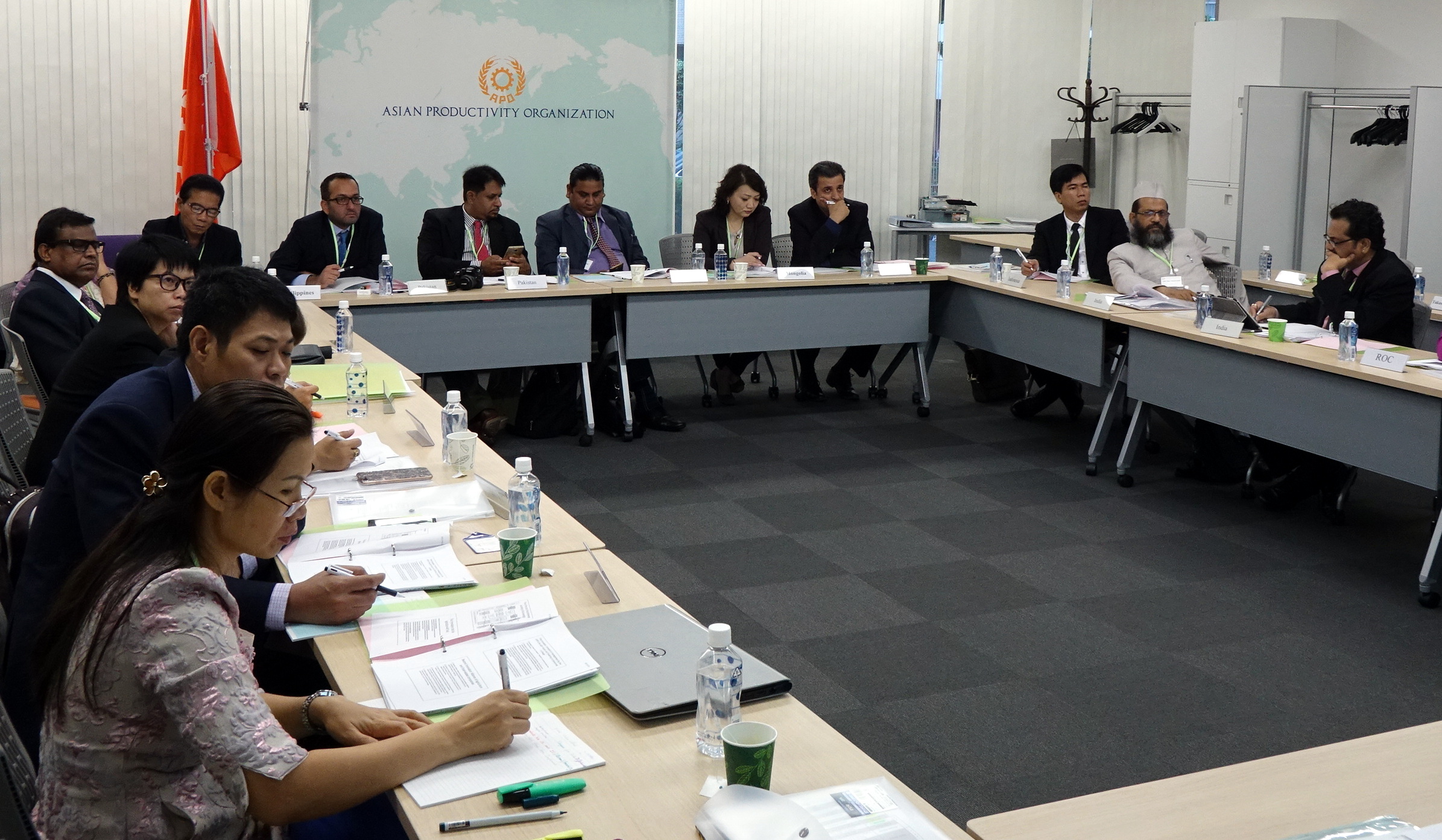
Select Page
The Asian Productivity Organization (APO) is conducting a Multicountry Observational Study Mission (OSM) on Innovations in Food Value Chain (FVC) Management at the Secretariat in Tokyo, organized under a special cash grant from the Government of Japan. Eighteen participants from 13 member countries are attending the six-day study mission commencing 15 May 2017. The OSM was inaugurated by APO Secretariat Agriculture Department Director Dr. Muhammad Saeed, who delivered the opening remarks.

Participants of the Multicountry Observational Study Mission on Innovations in Food Value Chain Management.
The mission provides opportunities to study current trends in FVC management in the host country. It will also expose participants to new technologies and innovative practices in FVC systems, enabling them to create action plans based on the Japanese experience to integrate small producers into FVCs and enhance their competitiveness, leading to more inclusive growth and sustainability in agriculture in member countries.
The OSM is led by five Japanese resource persons: Professor Emeritus Dr. Osamu Saito, Chiba University; Overseas Business Development Division Executive Officer Motoyuki Hazu, Nichirei Logistics Group; Food Industry Affairs Bureau Vice Director Takashi Mizushina, Food Industrial Innovation Division, Ministry of Agriculture, Forestry and Fisheries; Agribusiness Support Center President Yoichiro Otsuka; and Professor Dr. Takayuki Mori, University of Marketing and Distribution Sciences.
Increasing integration of the global economy offers many opportunities for growth, but promoting FVCs in developing countries is a complex task. The main challenges are flaws in the business environment; intense competitive pressures for higher productivity and efficiency to maintain market share; influence of international supermarkets, retailers, and buyers on access to markets; increasing consumer demand for high-quality, organic, minimally processed products, traceability, and social responsibility; and a higher risk of marginalization of areas characterized by poor infrastructure and small farms.
On the other hand, developed countries like Japan have developed state-of-the-art FVCs due to sound policy and institutional settings, advanced technologies, and public–private partnerships, among others. This offers good opportunities for OSM participants to learn from Japanese examples and adapt them to their own national settings.